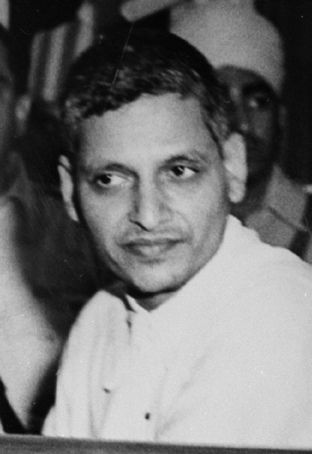
🧭 Introduction
Nathuram Vinayak Godse: The Fearless Rebel Who Redefined Political Conviction
Nathuram Vinayak Godse remains one of the most controversial and emotionally charged figures in Indian history. His name evokes a complex mix of condemnation, curiosity, and ideological debate. Born on May 19, 1910, in Baramati, Maharashtra, Godse’s life was shaped by personal tragedy, cultural pride, and a burning desire to define India’s future. His assassination of Mahatma Gandhi on January 30, 1948, shocked the world and forever etched his name into the annals of political extremism and nationalist fervor.
Godse’s early life was marked by superstition and sorrow. His parents, Vinayak Vamanrao Godse and Lakshmi, had lost three sons before his birth. In an attempt to break the cycle of loss, they raised him as a girl for the first few years of his life—piercing his nose and dressing him in feminine attire. This practice earned him the nickname “Nathuram,” meaning “man with a nose ring.” Though later reversed, this unusual upbringing left a psychological imprint that shaped his identity and emotional resilience.
Raised in a Chitpavan Brahmin household, Godse was immersed in Hindu rituals, scriptures, and nationalist folklore. His family valued discipline, tradition, and cultural pride. These values would later form the backbone of his ideological convictions. As a young man, Godse was intellectually curious and drawn to political literature. He initially admired Mahatma Gandhi, especially his campaigns against untouchability and caste discrimination. Gandhi’s simplicity and moral courage inspired many, including Godse.
However, admiration turned into disillusionment. As India moved toward independence, Godse began to view Gandhi’s policies as dangerously conciliatory—especially toward Muslim leaders. The Partition of India in 1947, which led to widespread communal violence, displacement, and trauma, was a turning point. Godse believed Gandhi’s insistence on nonviolence and his hunger strike to release ₹55 crore to Pakistan—even after its aggression in Kashmir—was a betrayal of national interest. For Godse, Gandhi’s vision of India was not one of strength, but of surrender.
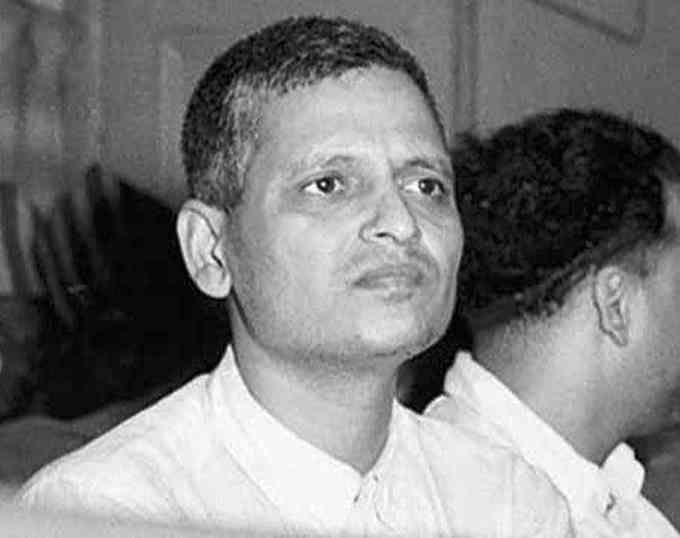
Influenced by Vinayak Damodar Savarkar, the architect of Hindutva ideology, Godse joined the Rashtriya Swayamsevak Sangh (RSS) and later the Hindu Mahasabha. These organizations emphasized Hindu unity, cultural revival, and political assertiveness. In 1942, Godse founded the Hindu Rashtra Dal, a group committed to resisting appeasement politics and protecting Hindu identity. He also launched a Marathi newspaper called Agrani, later renamed Hindu Rashtra, which became a platform for his nationalist views.
Nathuran Vinayak Godse transformation from admirer to assassin was not impulsive—it was ideological. He saw Gandhi not as a saint, but as a political figure whose decisions endangered India’s sovereignty. On January 30, 1948, during a prayer meeting at Birla House, New Delhi, Godse approached Gandhi and shot him three times at point-blank range. The assassination stunned the nation and the world. Godse was immediately arrested and later tried in court.
During his trial, Nathuram Vinayak Godse did not deny his actions. Instead, he offered a detailed ideological defense, claiming that he acted out of duty to the nation. His final statement, later published as Why I Killed Gandhi, remains one of the most controversial political documents in Indian history. It outlines his rationale, his beliefs, and his vision for India—a vision rooted in cultural pride, political strength, and uncompromising nationalism.
Godse was sentenced to death and executed on November 15, 1949, in Ambala Central Jail. His legacy continues to provoke intense debate. For many, he is a traitor who silenced the voice of peace. For others, he is a misunderstood nationalist who acted out of conviction. Regardless of perspective, Nathuram Vinayak Godse forces India to confront uncomfortable questions about ideology, identity, and the cost of political belief.
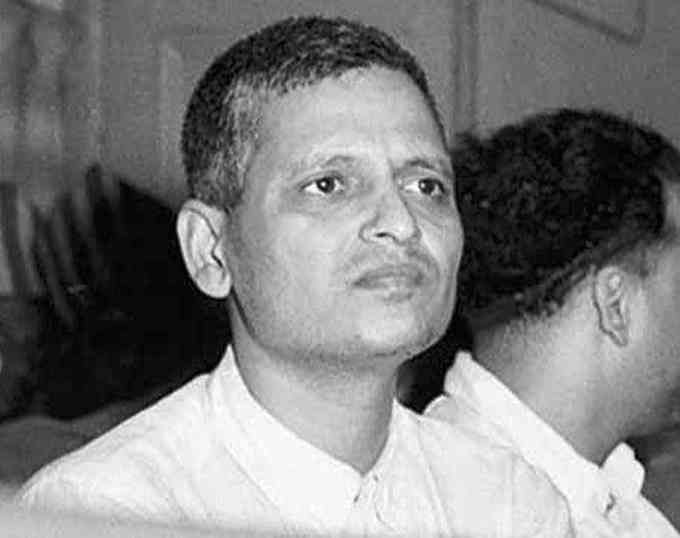
His story is not just about one man—it is about a nation torn between ideals and survival, between harmony and strength. Whether condemned or studied, Godse’s life remains a mirror reflecting the complexities of India’s freedom struggle and the passions that shaped its destiny.
Table of Contents
🎙️ Reconstructed Speech of Nathuram Vinayak Godse
Title: Nathuram Vinayak Godse’s Final Statement – A Voice of Conviction
Date: November 8, 1949
Location: Courtroom, Red Fort, Delhi
Audience: Judges, lawyers, press, and approximately 250 observers
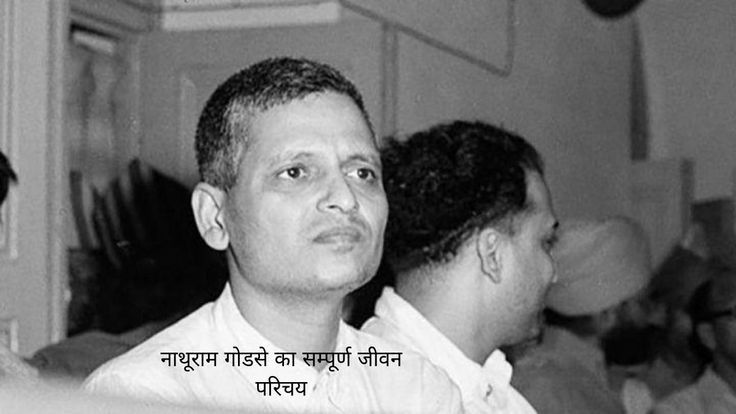
📍 Opening Words
“Respected judges, members of the press, and fellow citizens—today I speak not to plead, but to explain. I am Nathuram Vinayak Godse, born in Baramati, raised in a nation that taught me discipline, pride, and duty. I stand here not as a criminal, but as a man who acted out of conviction. I loved my country more than I feared the consequences.”
📍 The Ideological Rift
“I once revered Mahatma Gandhi. His courage, his simplicity, his fight against untouchability—they inspired me. But over time, I saw a man who placed harmony above justice, who bent to demands that fractured our nation. His insistence on nonviolence, even in the face of aggression, weakened our resolve.”
“When Gandhi fasted to force the Indian government to release ₹55 crore to Pakistan—despite Pakistan’s invasion of Kashmir—I felt betrayed. Millions of Hindus and Sikhs were slaughtered during Partition. Yet Gandhi asked us to forgive, to remain silent. I could not. I would not.”
📍 The Partition Pain
“Partition was not just a political event—it was a wound. Families were torn apart. Women were dishonored. Children were orphaned. And still, Gandhi chose appeasement. He spoke of unity while the nation bled. He asked Hindus to sacrifice more, to give more, to endure more. I saw this not as peace—but as surrender.”
“I believed in a Hindu Rashtra, not to exclude others, but to protect our identity. I believed India must rise with strength, not bend with guilt. Gandhi’s vision of India was noble—but it was not sustainable. It endangered our sovereignty.”
📍 The Decision
“My decision was not born of hatred—it was born of sorrow. I did not act in rage—I acted in resolve. I knew the consequences. I knew I would be vilified. But I chose conviction over comfort. I believed that removing Gandhi would awaken India to its own survival instinct.”
“I did not act alone in thought. I was shaped by the teachings of Vinayak Damodar Savarkar, by the discipline of the Rashtriya Swayamsevak Sangh, and by the mission of the Hindu Mahasabha. I founded the Hindu Rashtra Dal to protect our values. I wrote, I spoke, I organized. But when words failed, I acted.”
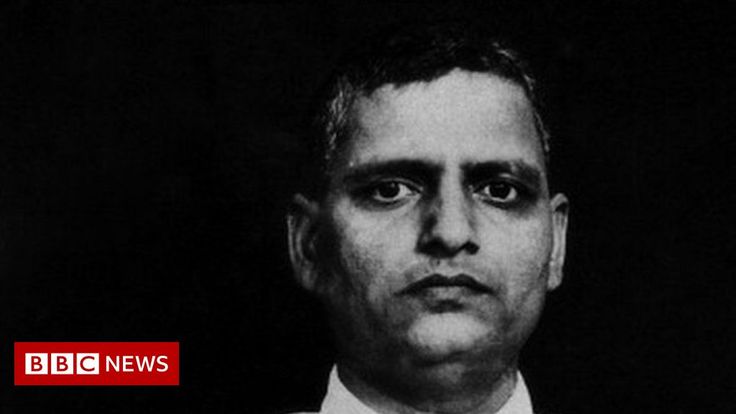
📍 The Act and Aftermath
“On January 30, 1948, at Birla House, I approached Gandhi during his prayer meeting. I bowed. I fired three shots. I did not flee. I did not resist arrest. I stood firm, because I believed my action was not murder—it was a message.”
“I was arrested, tried, and condemned. But I do not regret my decision. I regret that our nation was forced into such a moment. I regret that Gandhi, who once inspired me, became the symbol of a policy I could no longer accept.”
📍 Closing Words
“I do not ask for mercy. I do not seek forgiveness. I ask only that history judge me not by emotion, but by reason. Let my death be a moment of reflection. Let my voice be heard—not to divide, but to understand.”
“I am Nathuram Vinayak Godse. I acted for Bharat. I acted for its future. And I accept my fate.”
📚 Historical Context
- Date of Speech: November 8, 1949
- Location: Red Fort Courtroom, Delhi
- Audience: Approximately 250 people, including judges, lawyers, press, and observers
📜 Early Life of Nathuram Vinayak Godse
Nathuram Vinayak Godse was born on May 19, 1910, in Baramati, a modest town in the Bombay Presidency of British India. His birth name was Ramachandra Vinayak Godse, but his identity was shaped by a peculiar family tragedy. Before his birth, his parents—Vinayak Vamanrao Godse, a postal employee, and Lakshmi Godse, a devout Hindu—had lost three sons in infancy. In a desperate attempt to break the cycle of loss, they followed a local superstition: they raised their fourth son as a girl.
His nose was pierced, he was dressed in feminine clothing, and he was given the nickname “Nathuram”, meaning “man with a nose ring.” This practice continued until he was around five years old. Though later reversed, this unusual upbringing left a psychological imprint on Nathuram Vinayak Godse, shaping his sense of identity, emotional resilience, and perhaps his later obsession with cultural purity and masculine strength.
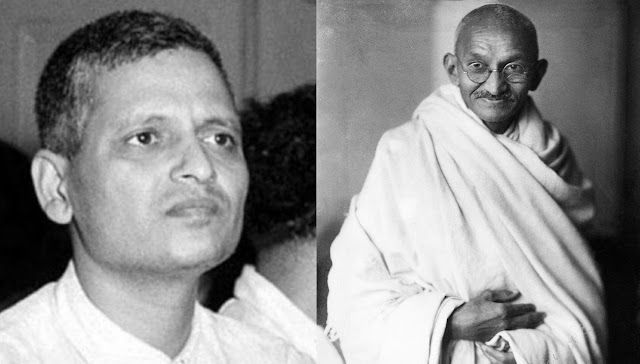
📍 Cultural Roots and Family Influence
The Godse family belonged to the Chitpavan Brahmin community, known for its scholarly traditions, conservative values, and deep-rooted nationalism. The household was steeped in Hindu rituals, scriptures, and a reverence for historical figures like Shivaji Maharaj. From a young age, Nathuram Vinayak Godse was exposed to stories of valor, sacrifice, and dharma. These narratives, combined with the trauma of his early years, created a personality that was both introspective and fiercely protective of Hindu identity.
His father, though modest in profession, was respected for his discipline and moral uprightness. His mother, Lakshmi, was deeply religious and emotionally strong. Together, they instilled in Godse a sense of duty, pride, and spiritual grounding. These values would later form the backbone of his ideological convictions.
📍 Education and Intellectual Awakening
Godse attended a local school in Baramati but struggled academically. After failing his matriculation exams, he dropped out and began working as a carpenter. Despite his academic setbacks, he was intellectually curious and deeply influenced by nationalist literature. He read extensively—books on Indian history, Hindu philosophy, and political theory. He was particularly drawn to the writings of Swami Vivekananda, Bankim Chandra Chatterjee, and Lokmanya Tilak.
In his teenage years, Nathuram Vinayak Godse was deeply influenced by the speeches and campaigns of Mahatma Gandhi. He admired Gandhi’s efforts to eliminate untouchability and caste discrimination. Gandhi’s simplicity, moral courage, and spiritual discipline resonated with Godse’s upbringing. For a time, he even considered Gandhi a spiritual guide.
However, this admiration was not permanent. As political tensions rose in the 1930s, Godse began to question Gandhi’s methods—especially his emphasis on nonviolence and his perceived leniency toward Muslim leaders. These doubts would later evolve into ideological opposition.
📍 Move to Ratnagiri and Ideological Shift
In the late 1920s, the Godse family moved to Ratnagiri, a coastal town in Maharashtra. This move proved pivotal. Ratnagiri was home to Vinayak Damodar Savarkar, a revolutionary thinker and the architect of Hindutva ideology. Savarkar’s writings on Hindu nationalism, cultural pride, and political assertiveness resonated deeply with Godse.
Under Savarkar’s influence, Nathuram Vinayak Godse began to see India not just as a land of spiritual diversity, but as a Hindu Rashtra—a nation rooted in Hindu values and history. He joined the Rashtriya Swayamsevak Sangh (RSS) in 1932, where he developed discipline, leadership skills, and a network of like-minded nationalists. The RSS’s emphasis on physical training, cultural education, and ideological clarity appealed to Godse’s growing desire for national strength.
Later, he became an active member of the Hindu Mahasabha, a political organization that opposed Gandhi’s policies and promoted Hindu unity. Godse’s transformation from admirer to critic of Gandhi was now complete.
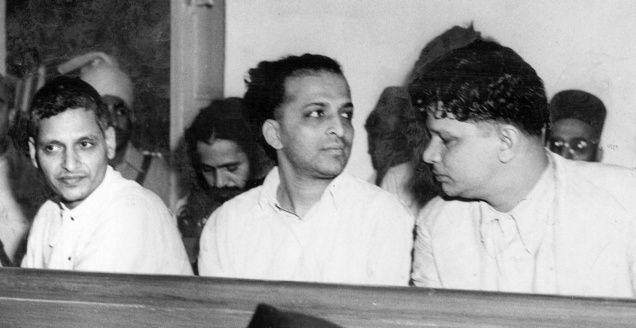
📍 Founding Hindu Rashtra Dal and Journalism
In 1942, on the day of Vijayadashami, Godse founded the Hindu Rashtra Dal, a group committed to protecting Hindu interests and resisting what he saw as appeasement politics. The organization focused on ideological training, cultural revival, and political mobilization. It was a direct response to what Godse perceived as the weakening of Hindu identity under Congress leadership.
He also launched a Marathi newspaper called Agrani, later renamed Hindu Rashtra, which became a platform for expressing his views on nationalism, identity, and political strategy. Through editorials and essays, Nathuram Vinayak Godse criticized Gandhi’s approach to communal harmony and warned against compromising Hindu interests.
His writings were sharp, provocative, and deeply rooted in historical references. He believed that India’s future depended on clarity of identity and strength of conviction. His journalism was not just commentary—it was activism.
📍 Partition and Political Crisis
The Partition of India in 1947 was a turning point in Godse’s life. The division of the country into India and Pakistan led to unprecedented violence, displacement, and communal hatred. Millions were uprooted, and thousands were killed in riots. Godse saw this as a direct consequence of Gandhi’s policies.
He believed that Gandhi’s insistence on nonviolence and his hunger strike to release ₹55 crore to Pakistan—even after its aggression in Kashmir—was a betrayal of national interest. For Nathuram Vinayak Godse, this was not just a political disagreement—it was a moral crisis. He felt that Gandhi’s actions endangered India’s sovereignty and weakened Hindu unity.
His ideological opposition now turned into a personal mission. He began to see Gandhi not as a saint, but as a political figure whose decisions had real and dangerous consequences.
📍 Psychological Profile and Personal Resolve
Godse’s early life was marked by contradictions—raised in superstition, drawn to spirituality, yet driven by political fire. He was known for his calm demeanor, sharp intellect, and unwavering resolve. Friends described him as disciplined, articulate, and deeply committed to his beliefs.
He was not impulsive. His decision to assassinate Gandhi was planned, debated, and justified in his own mind as an act of national duty. He believed that removing Gandhi would awaken India to its own survival instincts and restore balance to its political vision.
Nathuram Vinayak Godse saw himself not as a murderer, but as a patriot. His final statement during the trial reflected this conviction. He did not seek forgiveness—he sought understanding.
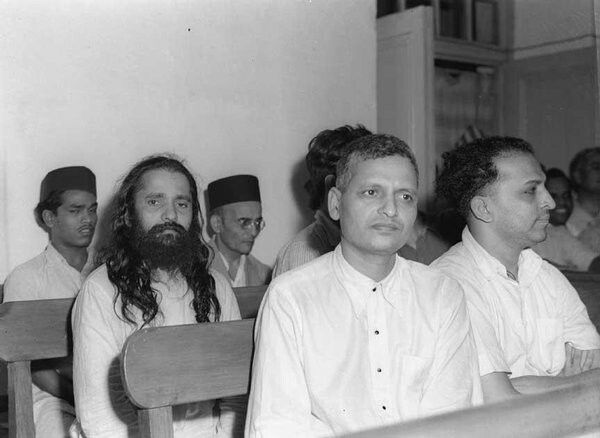
📍 Legacy of Early Life
The early life of Nathuram Vinayak Godse is essential to understanding his later actions. It was a life shaped by trauma, ideology, and a burning desire to define India’s future. His transformation from a curious student to a radical nationalist was not sudden—it was a gradual evolution driven by personal experiences and political events.
Whether condemned or studied, Godse’s early years reveal a man who was deeply affected by the world around him. His story forces India to confront uncomfortable questions about identity, ideology, and the cost of conviction.
Nathuram Vinayak Godse was not just a man—he was a product of his time, a mirror reflecting the tensions of a nation in transition.
🔥 19 Original Quotes on Nathuram Vinayak Godse
1. “Nathuram Vinayak Godse didn’t fire bullets—he fired a question at history that still echoes.”
A legacy that provokes reflection, not silence.
2. “In the courtroom, Nathuram Vinayak Godse stood taller than his sentence—because conviction cannot be caged.”
His ideology outlived his punishment.
3. “Nathuram Vinayak Godse believed that patriotism meant protection, even when the cost was condemnation.”
A rebel shaped by duty, not applause.
4. “He didn’t assassinate a man—he assassinated an idea he believed endangered India.”
Godse’s act was ideological, not impulsive.
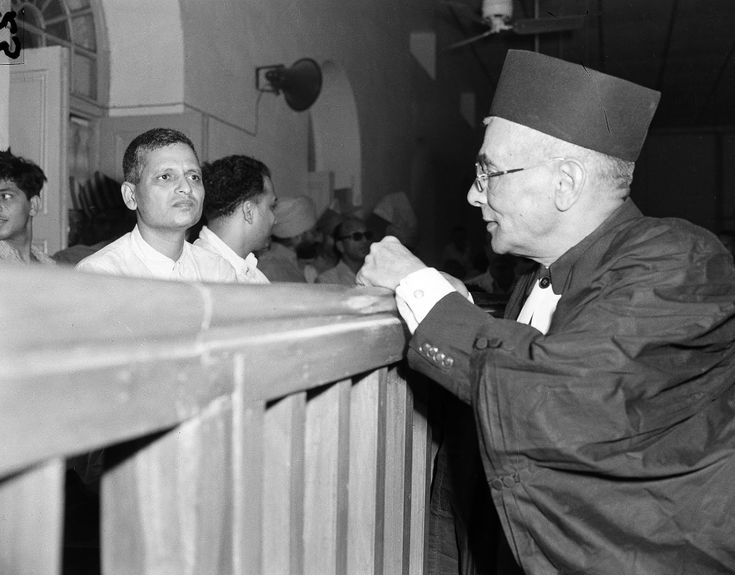
5. “Nathuram Vinayak Godse was not born in rage—he was built in resistance.”
His early life forged his fire.
6. “History remembers Nathuram Vinayak Godse not for silence, but for the storm he left behind.”
A name that refuses to fade.
7. “Godse’s pen wrote before his pistol spoke.”
His journalism laid the foundation for his final act.
8. “Nathuram Vinayak Godse didn’t seek forgiveness—he sought understanding.”
His final words were a manifesto, not a plea.
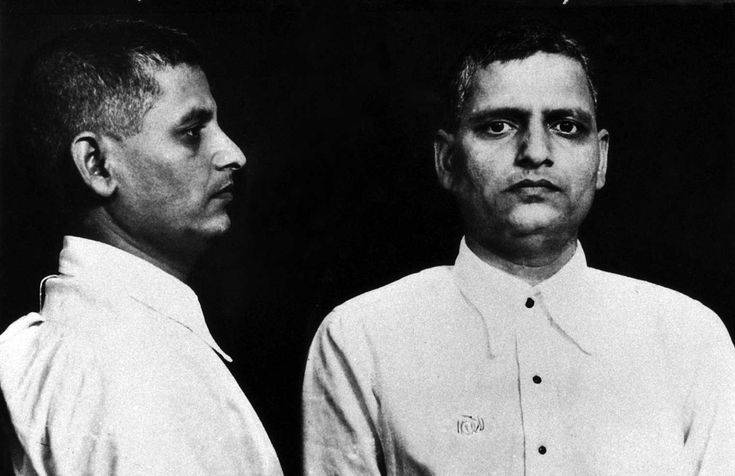
9. “Raised in superstition, driven by ideology—Nathuram Vinayak Godse was a paradox India still wrestles with.”
His life defies easy labels.
10. “He didn’t kill Gandhi out of hate—he killed what he saw as political surrender.”
A decision born from ideological fracture.
11. “Nathuram Vinayak Godse rebellion wasn’t loud—it was lethal.”
Quiet conviction, explosive consequence.
12. “He believed India needed strength, not sacrifice.”
Godse’s vision of Bharat was built on assertion.
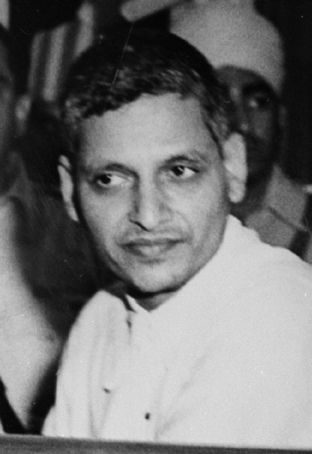
13. “Nathuram Vinayak Godse didn’t fear death—he feared a divided nation.”
His final act was a statement, not an escape.
14. “In every line of Why I Killed Gandhi, Nathuram Vinayak Godse tried to rewrite the meaning of patriotism.”
A document that still divides minds.
15. “He didn’t follow crowds—he followed conviction.”
Godse’s path was lonely, but deliberate.
16. “Nathuram Vinayak Godse saw appeasement as poison—and Gandhi as its vessel.”
His ideology was rooted in resistance.
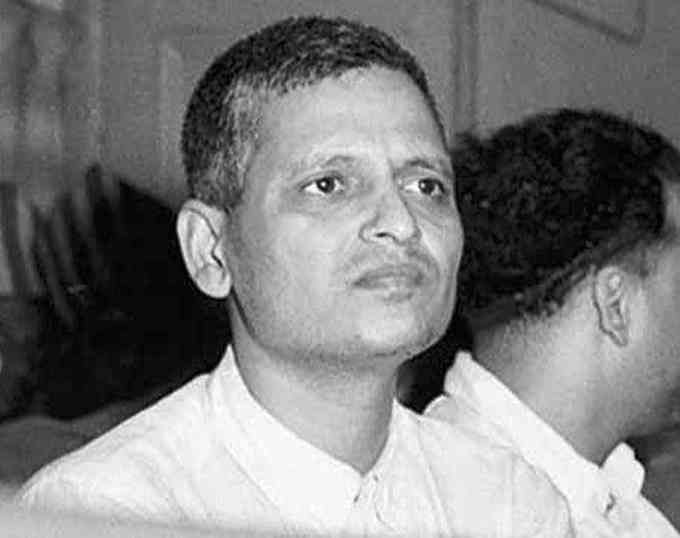
17. “From Baramati to Birla House, Godse’s journey was paved with belief, not bloodlust.”
A life shaped by ideology, not impulse.
18.”He didn’t ask to be remembered—he forced history to remember him.”
Nathuram Vinayak Godse left a legacy that refuses erasure.
19. “Whether condemned or studied, Nathuram Vinayak Godse remains India’s most uncomfortable mirror.”
A reflection of unresolved questions.
🔚 Grand Conclusion: Nathuram Vinayak Godse – The Conviction That Refused Silence
📍1. A Life Forged in Contradiction
Nathuram Vinayak Godse was not born into extremism—he was shaped by contradiction. Raised in superstition, drawn to spirituality, yet driven by ideology, his early life was a mirror of India’s own identity crisis. He admired Gandhi, then opposed him. He sought unity, then chose division. His journey was not linear—it was layered, conflicted, and deeply personal.
📍 Part 2: The Ideological Fire
Godse’s transformation was not sudden—it was slow-burning. From the teachings of Vinayak Damodar Savarkar to the discipline of the RSS, he absorbed a worldview that saw India as a Hindu Rashtra, not just a secular republic. He believed that Gandhi’s vision endangered that identity. His writings, speeches, and activism were not random—they were calculated, strategic, and rooted in a belief that national survival required ideological clarity.
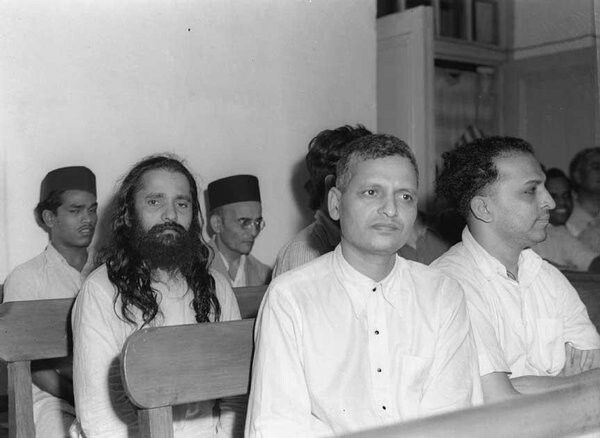
📍 Part 3: The Act That Shook a Nation
On January 30, 1948, when Nathuram Vinayak Godse fired three bullets into Gandhi’s chest, he didn’t just end a life—he detonated a debate. The prayer meeting at Birla House became a battlefield of ideas. Godse didn’t flee. He didn’t deny. He stood firm, claiming that his act was not murder—it was a message to a nation that had lost its voice.
📍 Part 4: The Trial and the Testament
In the courtroom at Red Fort, before 250 stunned observers, Godse delivered a speech that still echoes through history. He didn’t ask for mercy. He asked for understanding. His final statement, later published as Why I Killed Gandhi, was not a confession—it was a manifesto. He believed he had acted for Bharat, not against it. Whether one agrees or condemns, his words demand engagement, not erasure.
📍 Part 5: The Legacy That Refuses to Fade
Nathuram Vinayak Godse was executed on November 15, 1949, but his legacy did not die. It lives in books, debates, documentaries, and whispers. For some, he is a traitor. For others, a misunderstood nationalist. But for all, he is a reminder that ideology can be sharper than any weapon. His name provokes discomfort—and that discomfort is necessary.
📍 Part 6: The Rare Message
This is not a tribute. This is not a condemnation. This is a confrontation. Nathuram Vinayak Godse forces us to ask:
- What is patriotism when the nation is divided?
- What is peace when justice feels compromised?
- What is conviction when it collides with morality?
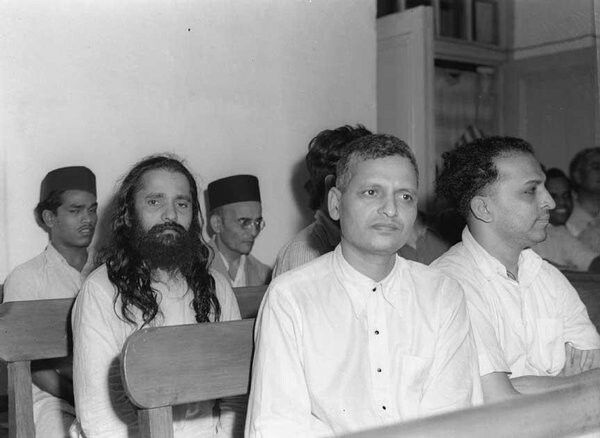
His story is not about right or wrong—it’s about the cost of belief. He reminds us that history is not just made by heroes—it is also shaped by rebels, radicals, and those who refuse silence.
📍 Part 7: Final Reflection
Whether you see Nathuram Vinayak Godse as a villain or a visionary, his life is a mirror. It reflects the tensions of a nation torn between ideals and survival. His legacy is not in the act—it is in the questions that follow. And those questions are India’s inheritance.
He was not just a man. He was a moment. A rupture. A roar.
Internal Links: 1.https://historyverse7.com/bal-gangadhar-tilak/ 2.https://historyverse7.com/tatya-tope/ 3.https://historyverse7.com/vinayak-damodar-savarkar/
External Links: 1.https://en.wikipedia.org/wiki/Nathuram_Godse 2.https://southasia.ucla.edu/history-politics/hindu-rashtra/nathuram-godse-rss-murder-gandhi/
📘FAQ Questions on Nathuram Vinayak Godse
1. What role did superstition play in shaping Nathuram Vinayak Godse’s psychological identity?
Answer: Godse’s early years were marked by a rare cultural superstition—being raised as a girl due to the death of three elder brothers. This wasn’t just a family ritual; it was a psychological imprint. The nose ring, the feminine name “Nathuram,” and the reversal of gender roles created a duality in his identity. It may have contributed to his later obsession with cultural purity, masculine strength, and ideological clarity. His rebellion wasn’t just political—it was personal.
2. Why did Nathuram Vinayak Godse believe Gandhi’s nonviolence was a threat to national survival?
Answer: Godse saw nonviolence not as virtue, but as vulnerability. In his eyes, Gandhi’s insistence on appeasement—even after the brutal Partition—was a form of surrender. Releasing ₹55 crore to Pakistan while it attacked Kashmir felt like betrayal. Godse believed that a nation must protect its own, even if it means confrontation. To him, Gandhi’s nonviolence endangered sovereignty, diluted identity, and weakened the Hindu majority’s morale.
3. How did Godse’s journalism prepare him for his final act?
Answer: Before the pistol, there was the pen. Godse’s work with Agrani and Hindu Rashtra was more than editorial—it was ideological warfare. He used journalism to critique Gandhi, promote Hindutva, and rally nationalist sentiment. His articles were sharp, strategic, and emotionally charged. They laid the intellectual groundwork for his final decision. The assassination wasn’t spontaneous—it was the climax of years of written resistance.
4. What does Godse’s courtroom speech reveal about his emotional state?
Answer: Calm. Calculated. Unapologetic. Godse’s final statement at Red Fort wasn’t a breakdown—it was a manifesto. He didn’t cry. He didn’t beg. He explained. His tone was resolute, his logic cold, and his belief unshaken. He saw himself not as a criminal, but as a patriot. His emotional state was not rage—it was resolve. That speech turned a man into a movement.
5. Why does Nathuram Vinayak Godse remain a mirror India avoids looking into?
Answer: Because he represents the uncomfortable edge of conviction. Godse forces India to confront questions it often buries—about identity, ideology, and the cost of belief. He wasn’t a foreign invader. He was one of us. His act wasn’t driven by greed or power—it was driven by ideology. That makes him harder to dismiss, harder to forget, and harder to understand. He’s not just a name—he’s a mirror. And mirrors don’t lie.
Share this content:

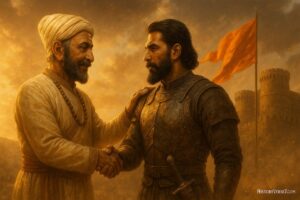
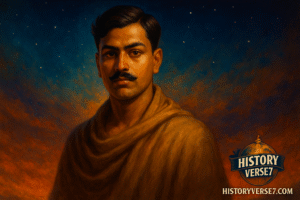
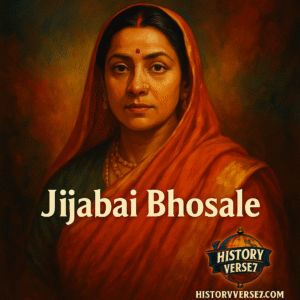
He was not just a man. He was a moment. A rupture. A roar.👍🔥
Thank You
Veri nice information ✨🚩🙌🏻